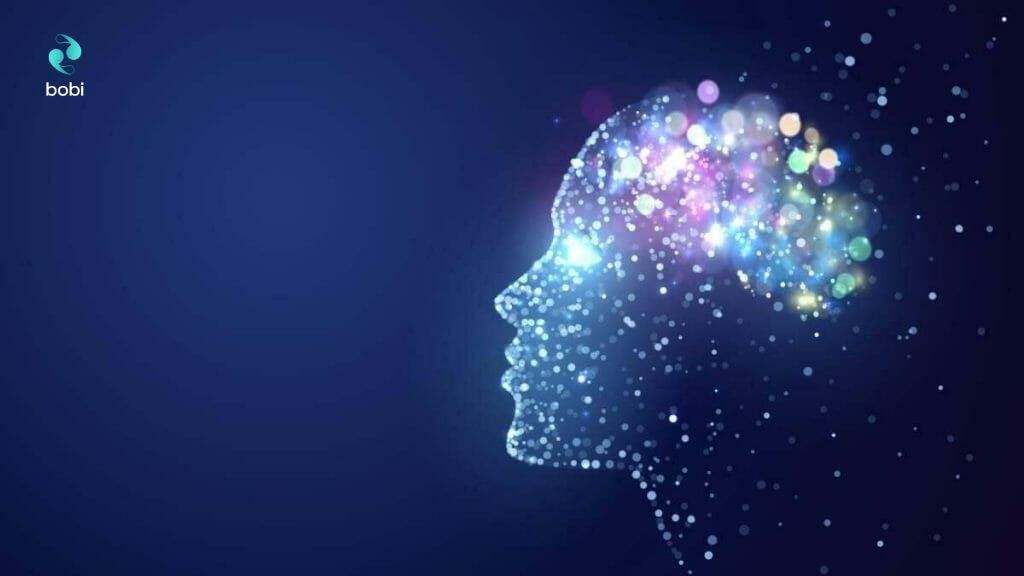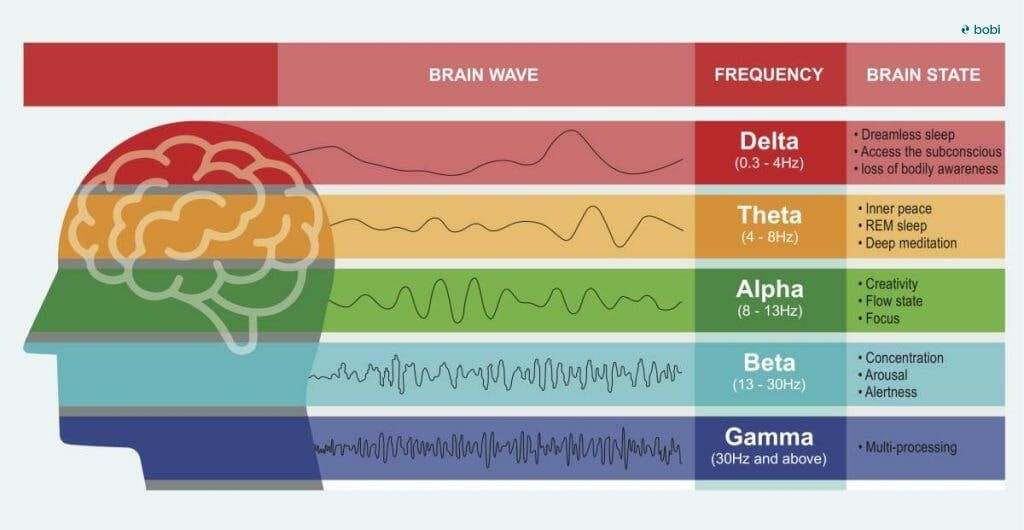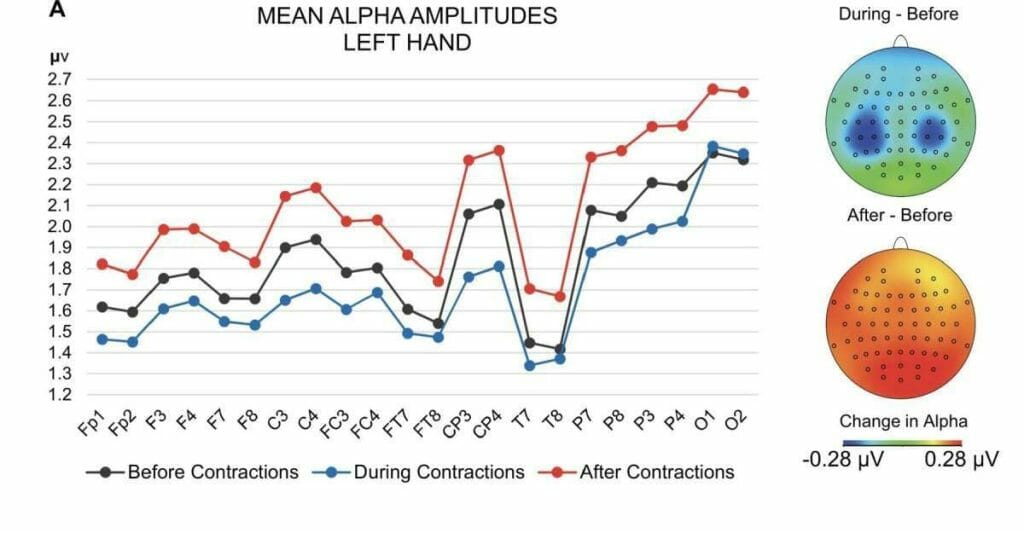
In today’s fast-paced world, finding moments of calm and clarity can be a challenge. The continuous electrical activity happening in our brains 24/7 helps us carry out our daily chores perfectly by producing certain waves. One among them is called alpha brain waves.
The perfect solution to go in a state of calm and quiet are these waves. So, enter the realm of producing alpha brain waves, a state of relaxed alertness that can be enhanced with the right tools and techniques. Complete your toolkit with a perfection called bobi _ designed to boost your alpha brain waves production with the power of hand contraction and breathing exercises.
The human brain is a complex organ, continuously crowded with electrical activity. This activity, which nurtures our every thought, emotion, and action, can be carefully measured. This measurement is by a tool known as the Electroencephalogram, or EEG (a method used to measure the electrical activity in the brain). The EEG provides a window into the brain’s inner operations, allowing scientists to categorize its electrical signals into specific wave types. Each of these wave types signals different states of consciousness that we experience throughout our daily lives.
Alpha waves, a prominent feature in the brain wave field, represent a specific type of electrical activity produced by the human brain. These waves are often known as alpha brain waves, or simply ‘alpha‘. They denote a state of relaxed alertness, which is different from the more active states associated with beta waves or the deeper relaxation linked to theta waves.
When the brain produces a greatest amount of alpha waves, it often indicates a calm, peaceful, and meditative state. This is the kind of brain activity that one might experience during moments of wakeful relaxation, such as when closing the eyes and falling into a state of self-analysis.
The presence of alpha brain activity is a clear sign that the mind is neither overly active nor in deep sleep but is in a balanced state of alert relaxation.
In the field of neuroscience, the frequency of brain waves is of great importance. Alpha waves oscillate between 8 to 14 Hz. This places them in a unique position on the brain wave scale. They are slower than the beta waves, which typically represent active, analytical thought and range from 14 to 30 Hz.
On the other hand, alpha waves are faster than theta waves, which oscillate between 4 to 8 Hz and are associated with deeper relaxation and the initial stages of sleep. This unique frequency range of alpha brainwaves makes them a bridge between the active cognitive states and the more relaxed or passive states, allowing individuals to tap into both realms effectively. This alpha brain waves frequency sets it apart from other ones.

Brain Wave Type |
Frequency Range |
Associated Mental States |
Function |
|
| Alpha | 8 – 14 Hz | Relaxed alertness, wakeful relaxation | Connects active and relaxed states | |
| Beta | 14 – 30 Hz | Active, analytical thought | Involved in problem-solving and decision-making | |
| Gemma | Above 30 Hz | Higher cognitive processing | Linked to complex thought patterns and information processing | |
| Theta | 4 – 8 Hz | Deep relaxation, light sleep | Associated with meditation and early stages of sleep | |
| Delta | Below 4 Hz | Deep, dreamless sleep | Promotes rest and recovery |
In the vast and complex field of neuroscience, the emergence of alpha waves has been a groundbreaking revelation.
This discovery, which significantly shifted our understanding of brain activity, was an introductory work of the German psychiatrist Hans Berger. In the early 20th century, Berger embarked on a journey to decode the mysteries of the human brain. With the help of the electroencephalogram (EEG) – a cutting-edge technology of his era – he carefully recorded the brain’s electrical patterns.
Among the countless signals, one particular pattern caught his attention. When the eyes were closed, this special pattern, which he perfectly named “alpha” due to its pioneering discovery status, prominently emerged.
The alpha waves, as Berger identified, were not just another set of frequencies. They differs from the commonly known beta, gamma, theta, and delta waves. These alpha waves resonated at a unique frequency, symbolizing a state of relaxed alertness or what can be described as wakeful relaxation. Such a state is neither the activeness of daily tasks nor the deep sleep of rest but a peaceful balance between the two.
Drawing insights from various studies on the history of brain waves, it becomes evident that Berger’s discovery was not just about identifying a new wave. It was about understanding its deep impact on our mental states.
This revelation not only expanded the scope of neuroscience but also paved the way for in-depth research into the diverse spectrum of brain waves and their influence on human consciousness.
Alpha waves, often referred to as the brain’s alpha waves, are identical to relaxation without drowsiness. When the brain produces more alpha waves, it signifies a state of calm and self-analysis. This is the kind of idle state that one might experience during meditative state practices or while performing yoga.
The presence of these waves indicates that the brain is in a restful yet alert state, making them ideal for moments of introspection and calm.
The brain activity associated with alpha waves is also linked to heightened creativity and visualization. When in an alpha state, individuals often report enhanced creative thinking and problem-solving abilities. According to a study, increasing alpha power using 10 Hz transcranial alternating current stimulation (10 Hz-tACS) of the frontal cortex improves the creativity.
This is because alpha brainwaves promotes a favorable environment for solving problems and coming up with innovative ideas. It’s during these moments of “flow” that the brain is most receptive to new ideas and can engage in deep reflection.
Serving as a bridge between conscious and subconscious worlds, alpha waves play a pivotal role in self-reflection and insight. When the brain is dominated by alpha activity, it’s easier to tap into subconscious thoughts and feelings.
This is why practices like practicing mindfulness and relaxation techniques that increase alpha oscillations are so beneficial for contemplation.
Following are some alpha brain waves benefits:
bobi, a groundbreaking tool in the realm of brain activity enhancement, has ingeniously incorporated the principle of left-hand contractions into its design. But why left-hand contractions?
Research, particularly the studies conducted by Professor Rich S.W. Masters, has shown that specific physical actions, such as unilateral left-hand contractions, can influence our brain’s alpha waves.
By imposing the concept of left-hand contractions, bobi aims to activates the production of alpha waves in the brain. This method is not just about the physical act but the complex connection between our body’s movements and the electrical activity in our brain. When users engage with bobi and utilize the left-hand contractions, they’re essentially tapping into a pool of alpha brain waves benefits.

Breathing, a fundamental aspect of life, plays a pivotal role in our mental states.

The area of brain activity and brain waves is complicated. While there are several alpha brain waves benefits, it’s crucial to approach them with understanding.
Overemphasizing the production of alpha brain waves or forcing their initiation, even with innovative tools like bobi, can have unintended consequences. An imbalance in our brain’s electrical activity can lead to issues like lack of focus, mental fatigue, or even stagnation.
It’s essential to remember that while producing alpha brain waves is beneficial, a harmonious balance of all brain waves is what truly supports optimal mental health.
The common belief is that alpha waves bring about relaxation and enhanced mental conditions. However, it might be opposite, maybe such mental conditions promotes the creation of alpha waves. The relation between mental states and brain activity is complicated and reciprocal. So, declaring a direct caution can be deceptive.
In certain states in which high attention and fast reactions are required, raised alpha brain activity can prove inefficient. For instance, when you’re operating a machinery or driving, increased alpha waves might possibly lowers response times and damages decision-making capabilities.
For more insights into the differences between brain waves and other electromagnetic waves, the MIT School of Engineering on brain waves is a valuable resource.
In the complex fabric of brain activity, alpha brain waves emerge as a signal of relaxation, creativity, and self-analysis. These waves, oscillating between 8 to 14 Hz, signify a unique state of wakeful relaxation. They bridge the gap between active cognition and deeper states of calm. Their influence extends beyond mere relaxation, promoting enhanced creativity, improved learning, and memory, as well as acting as a channel between our conscious and subconscious spheres. However, as with all things, balance is key. While the benefits of alpha waves are numerous, it’s crucial to ensure a harmonious blend of all brain wave types for optimal mental health.
By integrating principles like left-hand contractions and optimal breathing techniques, bobi serves as a passage to guide individuals towards achieving the coveted alpha state. In a world where mental peace often seems hard to catch, tools like bobi stand as a evidence to the possibilities of merging science and innovation to foster well-being. Get your bobi from here!

Alpha waves, often referred to as ‘alpha’, represent a specific type of electrical activity produced by the human brain. They signify a state of relaxed alertness, distinct from other brain wave states. When dominant, they indicate a calm, peaceful, and meditative state, typically experienced during moments of wakeful relaxation.
Alpha waves oscillate between 8 to 14 Hz. They are slower than beta waves, which range from 14 to 30 Hz and represent active, analytical thought. However, alpha waves are faster than theta waves, which oscillate between 4 to 8 Hz and are linked to deeper relaxation and initial sleep stages.
Alpha waves were first recorded by the German psychiatrist Hans Berger in the early 20th century using the electroencephalogram (EEG). He named the pattern “alpha” due to its primary discovery status.
Alpha waves are synonymous with relaxation without drowsiness. They are also linked to heightened creativity and visualization. When the brain is in an alpha state, individuals often report enhanced creative thinking and problem-solving abilities.
Alpha brain waves have several benefits including stress reduction, better sleep quality, improved learning and memory, enhanced relaxation, improved mood, better concentration and overall mental health.
Mindfulness and meditation exercises are efficient practices for elevating alpha brain wave production. Moreover, involving in gentle yoga or hearing out to relaxed music can improve alpha wave levels too.
Yes, alpha brain waves can enhance creativity. The waves foster a relaxed yet alert condition contributing to diverse thinking and problem-solving.
Although normally secure, extreme alpha brain wave activity in states demanding attention such as driving can lower response times and damages decision making. Over dependence on artificial techniques to cause these waves could also restrict natural coping skills.
Bobi is a handheld breathing coach that incorporates the principle of left-hand contractions to stimulate the production of alpha waves in the brain. by emphasizing optimal breathing techniques, bobi helps regulate the brain’s electrical activity. Particularly the alpha oscillations, leading to wakeful relaxation and a balanced mind.
Stay updated on what's happening at bobi, and all things breathing, anxiety and mental wellness.